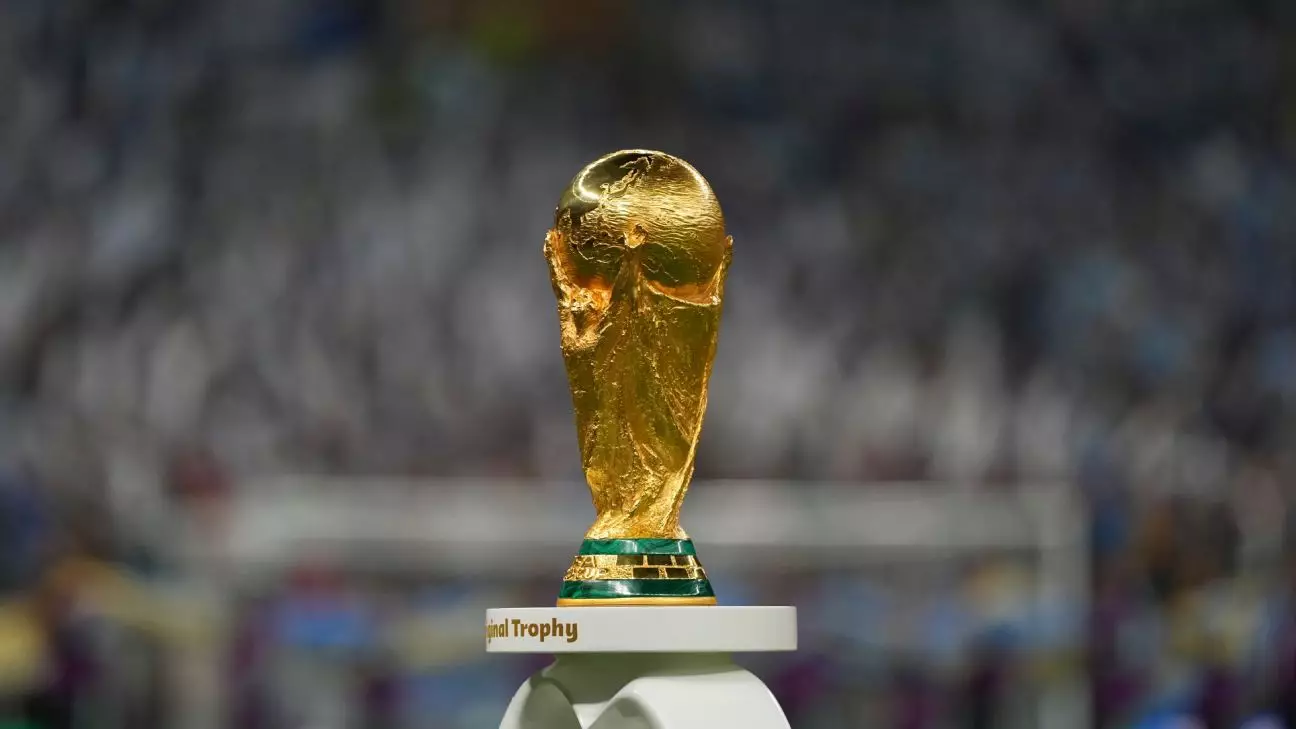The world of football is bracing itself for a significant upheaval as FIFA gears up to announce Saudi Arabia as the host for the 2034 World Cup. This decision, which comes after the nation emerged as the sole bidder, has reignited tensions between FIFA and major European leagues, particularly after the previously controversial Winter World Cup in Qatar in 2022. The challenges posed by a winter tournament are manifold, particularly concerning fixture congestion for leagues already operating on tight schedules.
One of the primary reasons for hosting the 2034 World Cup between October and April is the oppressive summer heat prevalent in the Middle East. FIFA’s bid evaluations have identified significant climate issues that necessitate an adjustment in the tournament schedule—similar to the arrangement seen in Qatar. While this concern is valid from a health and safety standpoint, it inevitably leads to scheduling conflicts that could disrupt established league seasons.
With a projected 48 teams participating in the 2034 tournament, the sheer volume of matches—104 in total—presents logistical nightmares for domestic leagues. Players from across Europe covering their respective club responsibilities may find themselves released as early as a month and a half prior to the tournament, leading to heightened concerns of fatigue and player burnout. Such a scenario not only jeopardizes player welfare but also undermines the integrity of club competitions.
Amidst these developments, the players’ union, FIFPRO Europe, has begun legal proceedings against FIFA’s approach to the International Match Calendar. Their complaint, submitted to the European Commission, alleges a blatant conflict of interest, wherein FIFA operates simultaneously as a governing body and competition organizer. This dual role presents significant challenges in prioritizing the welfare of players—who are, after all, the heart of the sport.
There is a growing sentiment among players, particularly in Europe, that their well-being is being sidelined in favor of FIFA’s developmental ambitions, leading to what can only be described as a precarious balancing act between international duty and club loyalty. The legal implications stemming from this conflict could have lasting repercussions, setting a precedent for future tournaments and potentially curtailing FIFA’s authority.
Despite the escalating tensions, FIFA has ostensibly made claims of intent to engage with leagues and players in reaching a consensus for the 2034 World Cup. However, this commitment rings hollow in light of the hastiness surrounding the announcement of the tournament—an action that appears to disregard the concerns raised by players and clubs alike. The evident lack of consultation signals a troubling trend of top-down decision-making that prioritizes profit over partnership.
What will it take for FIFA to truly collaborate with leagues and players? Perhaps it’s time for a re-evaluation of their current approach to international tournaments. Engaging in meaningful dialogue, acknowledging the specific needs of domestic competitions, and genuinely incorporating stakeholder feedback would represent significant steps in the right direction.
As the 2034 FIFA World Cup candidacy heats up, the impasse between FIFA and Europe’s marquee leagues will undoubtedly come to a head. The upcoming months will be crucial in determining whether FIFA can amicably navigate these discussions while safeguarding the interests of players and leagues. A successful resolution could very well pave the way for harmonizing the international calendar, ensuring that power dynamics do not overshadow the players who remain vital to the sport’s growth and appeal.
Ultimately, the success of the 2034 World Cup hinges not only on FIFA’s ability to execute its vision but also on its willingness to prioritize collaboration over unilateral decisions—all in the name of preserving the integrity of both club and international football. As we inch closer to this pivotal moment in football history, one can only hope that the voices of the players and leagues are not muted in the grand spectacle that is the World Cup.

